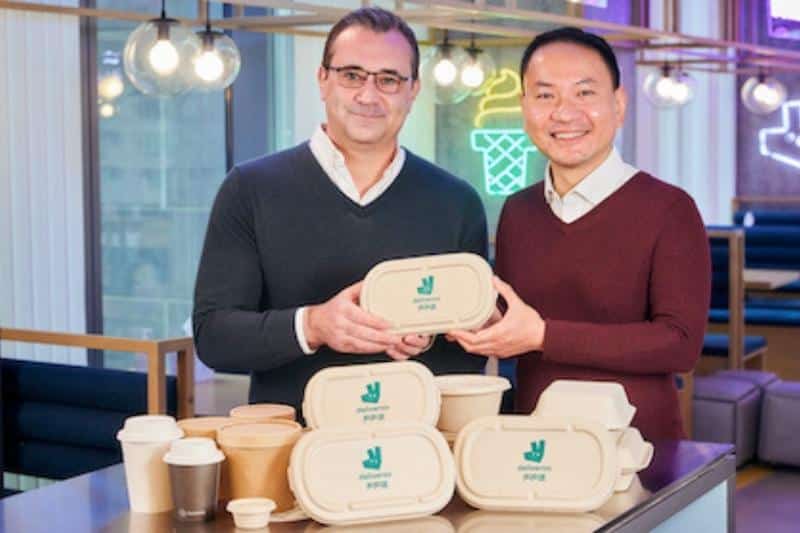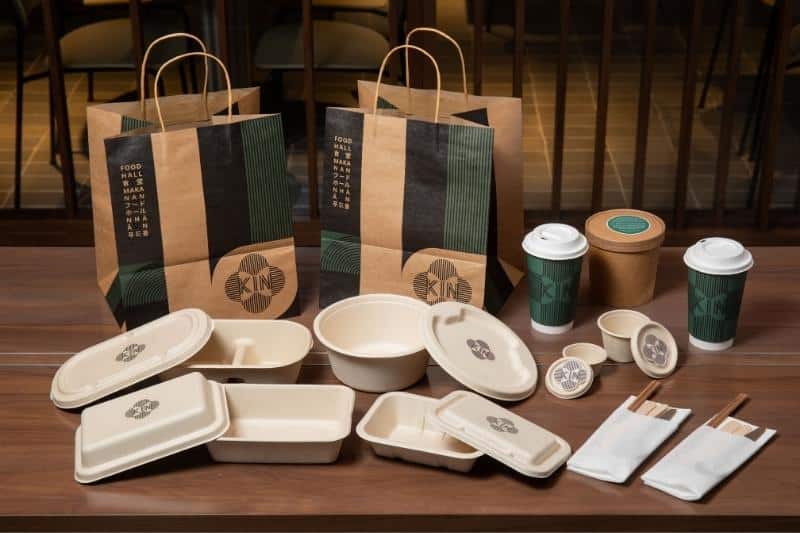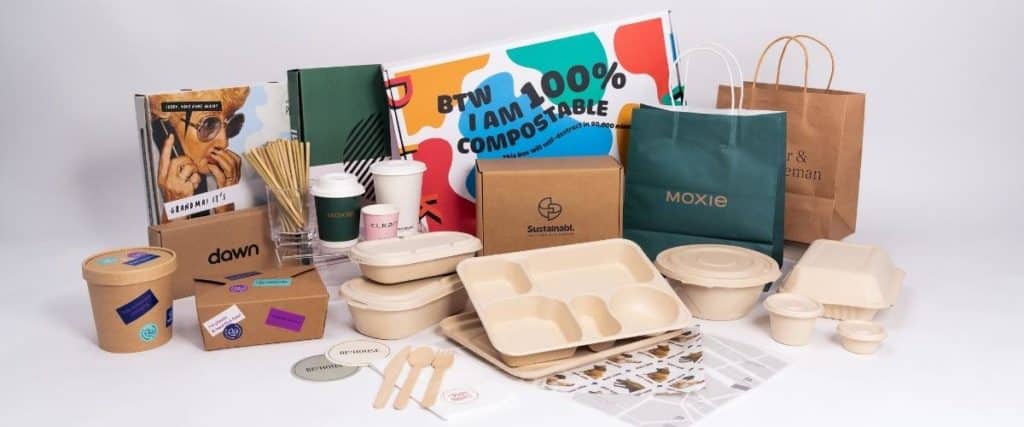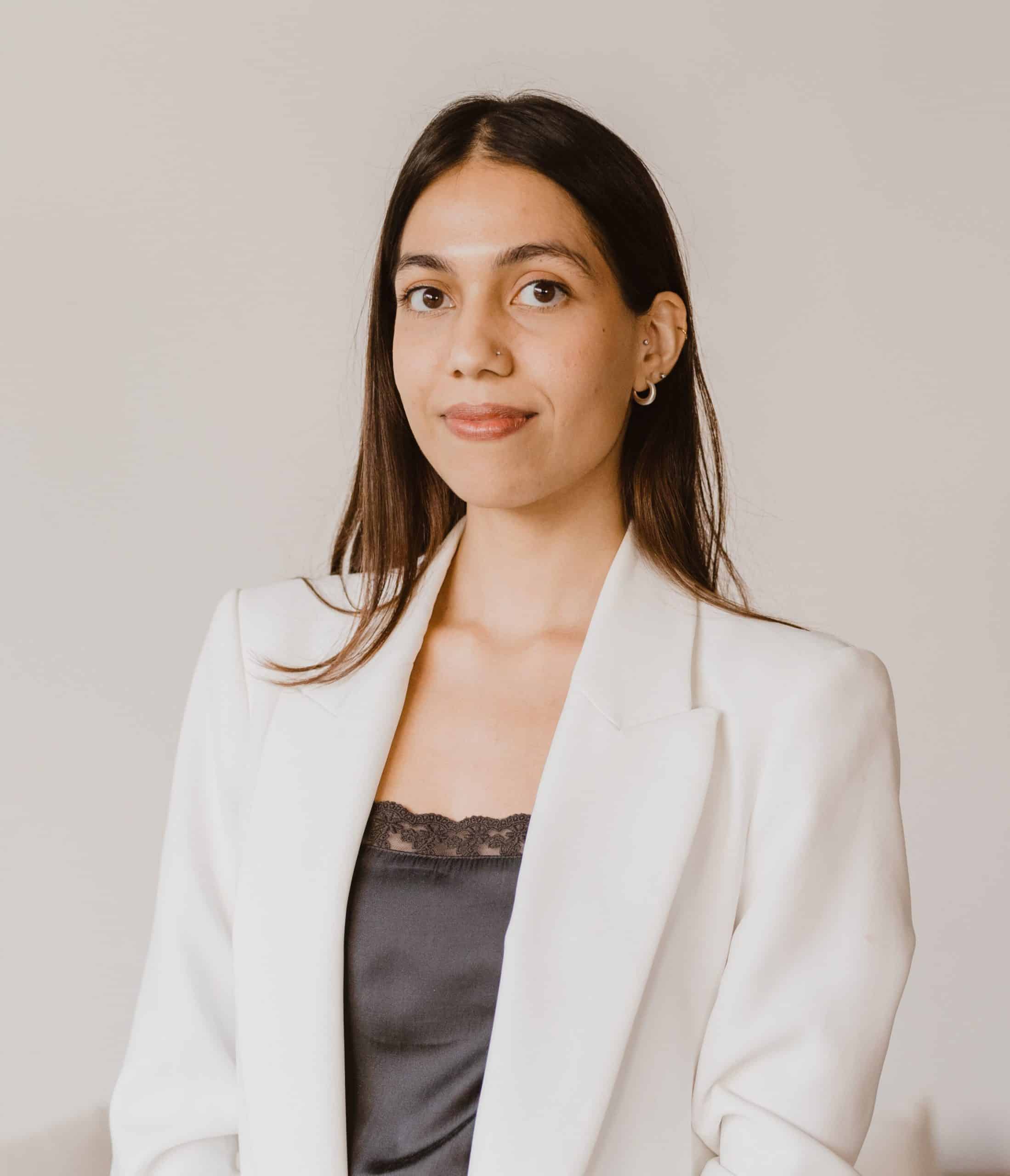Former lawyer and the Founder of eco-friendly biodegradable packaging label, Sustainabl., Richard Oliver, catches up with Hive Life on the origin story of the brand, its novel concept, and how they have spearheaded bringing a circular packaging solution to Hong Kong.
In recent years, single-use food packaging concerns have arisen around the globe, with growing speculation of wasteful practices within the food and beverages (F&B) industry. In the midst of the pandemic, the problem was only aggravated, with the majority of consumers opting for takeaway or ready-made meals, and takeout boxes becoming a commonality for households.
Former lawyer turned entrepreneur, Richard Oliver, devised his own sustainable packaging solution with Sustainabl., adamant to reinforce eco-conscious practices within Hong Kong’s F&B space. In a chapter of Richard’s time as a lawyer, he came across both the problem and an opportunity to step up his initiatives to tackle the growing waste problem. With valuable experience and real determination, he then went on to establish Hong Kong’s very own sustainable packaging company

Developed with the intent to promote a circular economy through packaging, Sustainabl.’s versatile range of home compostable and recyclable products are crafted with reused and repurposed matters, as well as their proprietary wonder-material, produced using leftover biowaste, Refibr. Committed to its cause, Sustainabl. sources all of its raw ingredients responsibly, ensuring ethical manufacturing and operations, and effectively reducing its carbon footprint through these practices.
Sustainabl.’s eco-friendly packaging solution was quick to see growth in the sector, with their products being adopted by many renowned hospitality groups, restaurants, and other prominent F&B names looking to make an eco-friendly transition.
Hive Life caught up with Richard as he shared insights on the sustainable packaging solution, how it has invigorated the local F&B space while promoting a circular economy, and his aspirations for Sustainabl.’s future.

Can you tell us more about your background?
I was brought up in the North of England, qualified as a lawyer around 20 years ago, was working there and became a Partner at a corporate law firm in Manchester. After 10 plus years of working as a corporate lawyer in the UK, I went to Australia and worked at a big firm in Melbourne which is now known as Herbert Smith Freehills. I ended up staying there for five years.
I moved to Hong Kong as a corporate lawyer with Freehills and after three years, I was in a rut. Having worked in corporate for many years, I wanted to take a step away from corporate life- wearing a suit every day, and working long hours.
Even though I work the same long hours now [with my own] business, the major difference is that I enjoy what I do!

How did you come to develop your own sustainable packaging solution?
About three years ago, I was working in Ho Chi Minh City for a legal client. One morning, I [ordered] my kale smoothie, and it came with a fresh green grass straw, and I remember being amazed. Around that time, everything was all about sustainable packaging and the plastic issue, and everyone was focused on plastic straws, for good reason.
A few weeks later, I went back and found who [created] the green grass straws, and came across a community of rice farmers in Mekong Delta who made these straws from weeds that grow in the paddy fields, and then produce it on a commercial level.
I always thought it was quite fascinating- they grow the long grass, which stands about seven feet tall, cut it, and then take it to a facility to sort and clean. It later gets chopped up and sold. Those grass straws were my first product and a real passion project I thought would help the world.

What is the vision behind Sustainabl.?
Stepping back to the DNA of our company, it is all about [introducing] truly sustainable packaging to [reinforce] the circular economy. My ambition, and my vision for Sustianabl. has always been to be the best in offering truly sustainable packaging.
To quote Sustainabl.’s mission statement: We strive to bring our customers responsibly sourced, plastic-free, home compostable and recyclable packaging solutions which ensure our products do not pollute our oceans or contribute to the increasing amount of global deforestation or unnecessary waste going to landfill.

Could you tell us more about the range of products that you offer?
We have three main categories – [Refibr, our pioneer material], is made from [leftover bio-waste produced in the sugarcane and wheat industries], is a great sustainable product, and it comes in all different shapes and sizes.
We have been doing loads of custom FSC paper products as well, including takeaway bags, boxes, bowls, and napkins. We have also done The Pizza Project’s pizza boxes. We sell from kombucha to chilli sauce and wine packaging, [all of which is] chemical and plastic free.
[We have] a separate category of FSC bamboo paper, with various diverse designs of coffee cups and lids that we pioneered. We are [in the process] of launching a new range of coffee cups that are plastic and PLA–free, so they have ultrasonic cellulose coating, which makes it all natural and completely compostable, as well as recyclable. We are hoping to move completely away from any PLA.

How does Sustainabl. aspire to tackle the single-use packaging waste issue in the city?
I have always been motivated by providing truly sustainable solutions, so everything has to be recyclable. Around the time [of my founding Sustainabl.,] my eyes were opened to the F&B packaging situation in Hong Kong- most people were, and are still using single-use plastic because it is cheap and functional.
I started doing some research on what other sustainable alternatives were available, for example, paper products, FSC paper rolls, and the bagasse product – [Refibr], one of our big sellers, which three years ago no one was using. However, now we see it quite regularly across Hong Kong.
It started with the grass straws, then we began selling [Refibr. Later on,] we developed our own FSC-certified bamboo paper cups. Bamboos are generally very sustainable and require less water in the manufacturing process. It is ideal from a carbon perspective as well, since bamboo grows three times quicker than normal trees.
It began to pick up, and over the two past years, we have grown tremendously, in terms of product range, people, and the team, which has been a relatively quick transition for us.

Is there a specific industry that Sustainabl.’s products are targeted towards?
Predominantly, it is F&B, and our main customer bases are hospitality groups, restaurants and bars, and we supply to a number of renowned hotels in Hong Kong as well.
Most of our packaging is inherently targeted towards F&B, and we do sell e-commerce mailers to non-F&B companies. Additionally, we work with some clothing retailers for their e-commerce solutions, but that is the smaller part of our business.
Who are some of the clientele Sustainabl. is working with?
We have two big projects. [One of which is] for Kin Food Halls, in Taikoo Place. It is Asia’s first sustainable food hall and they have done a [amazing] job backing it, with their tables made of coffee grinds and leftover pips from avocados, and all their products are sustainably sourced. We are proud to be the main packaging supplier for them.
As for the newest one, we have just finalised the first round of products for the new Fullerton Ocean Park Hotel.
We also supply to Rosewood, and Grand Hyatt, [which was] one of our first clients two years ago.

What is the process like securing these partnerships with well-known names?
The Grand Hyatt partnership came about after I met their executive Chef Gerhard at a sustainable F&B event. I introduced him to our concept, and they are very keen on being sustainable.
[I would say] your network certainly helps get [your brand] off the ground. For instance, now we have secured some good brands, it is a much easier sell. But when we were starting out, getting those few brands was quite difficult. Interestingly, those initial brands were mostly people I knew through my network and legal work. In some ways, [having secured bigger names] validates the products that you are selling.

What additional services do you provide to brands looking to invest in sustainable packaging solutions?
For all customers, we offer a sustainability review, [where] we assess and have a look at what products are they using, and we suggest more sustainable alternatives with a good price.
What are some of the things a brand might consider prior to switching over to eco-friendly packaging?
There are three things that customers consider- how sustainable the product is, secondly, the cost of that product, and lastly, how functional is the product going to be. The real challenge is to provide a more sustainable option that has a lower price, which is also just as functional, if not better.
We have customers who will only want to use completely sustainable products. On the other end of the spectrum, people opt for the cheapest [option], and then we have the biggest cohort, people who care about the environment, as well as the cost.
[Along these lines,] one of the big projects we have been working on at the moment has been a delivery partnership.
We were approached by Deliveroo about a year ago, to help with their delivery restaurant packaging subsidy project. How it works is that all delivery restaurants receive around a 30-50% discount on our products, [and to purchase the products,] they can visit our Deliveroo – Sustainabl. website to [place an order], and we will fulfil it.

Why do you think there is a greater need for sustainability and transparency in the packaging industry?
One of the biggest reasons I started off was to really focus more on sustainability, and right from the beginning, companies have been greenwashing– people being misled by things that are [labelled as] eco-friendly, green, or compostable. This is a matter of education and labelling, and while we do sell sustainable packaging, we also spend a significant amount of time and investment in educating people on why [certain] packaging is better than others.
Most people do not know what [some of these labels] could possibly mean, they may see words such as biodegradable and compostable and think it is [eco-friendly], but it does not mean it is compostable naturally, but rather industrially compostable.
While there is an education piece in the labelling, what I believe we need is to have stronger regulations around the words we can use.

Do you have any tips for newcomers in the industry?
This goes for both startups in packaging and [other fields], in whatever you are doing, it is important to have a good idea and validate those ideas with your peers, and really test those concepts in the market. Go out and do market research before you invest any money in it and leave your day job, make sure that you have developed a validated product.
While you do not necessarily need revenue, [ ensure] the product has a demand and is able to sell. If you can sell it, you will need to ensure it generates enough profit from the concept.

What can we look forward to seeing from Sustainabl.?
We want to maintain our position as one of the leading packaging providers in Hong Kong, and potentially globally.
I want to continue providing truly sustainable packaging solutions, and keep innovating so that our customers continue to [receive] the best packaging. Part of our vision moving forward is also to provide a circular solution for our products, so it does not end up in landfills.
We encourage everyone to take our packaging to the recycle stores, we are working on a [new] project now, our circular economy project, with three different composting facilities to get our packaging picked up. We are also working with Zero Foodprint Asia on a similar project, to divert as much as we can away from landfills. The composted products can then be used on farms in the New Territories, to then grow the food, which then gets used by local restaurants. [This helps] close the loop on the circular economy in packaging.
Another in-house project, as part of our sustainability goals, is to reduce our carbon footprint and potentially be carbon-neutral by the end of next year. Part of that is to ensure our products are not carbon-intensive, [as well as] our own behaviours, office practices, and deliveries across Hong Kong. It is a big project yet something we are certainly very focused on.

How can companies get in touch with the Sustainabl. to implement their packaging solutions?
They can contact us through our website, email us, or give us a call at (+852) 9178 5090.

Related Articles
8 Leading Food Entrepreneurs Disrupting APAC’s F&B Industry
7 Sustainable E-Commerce Platforms on the Rise in APAC
Top Biodegradable Plastic Alternatives to Live More Sustainably





